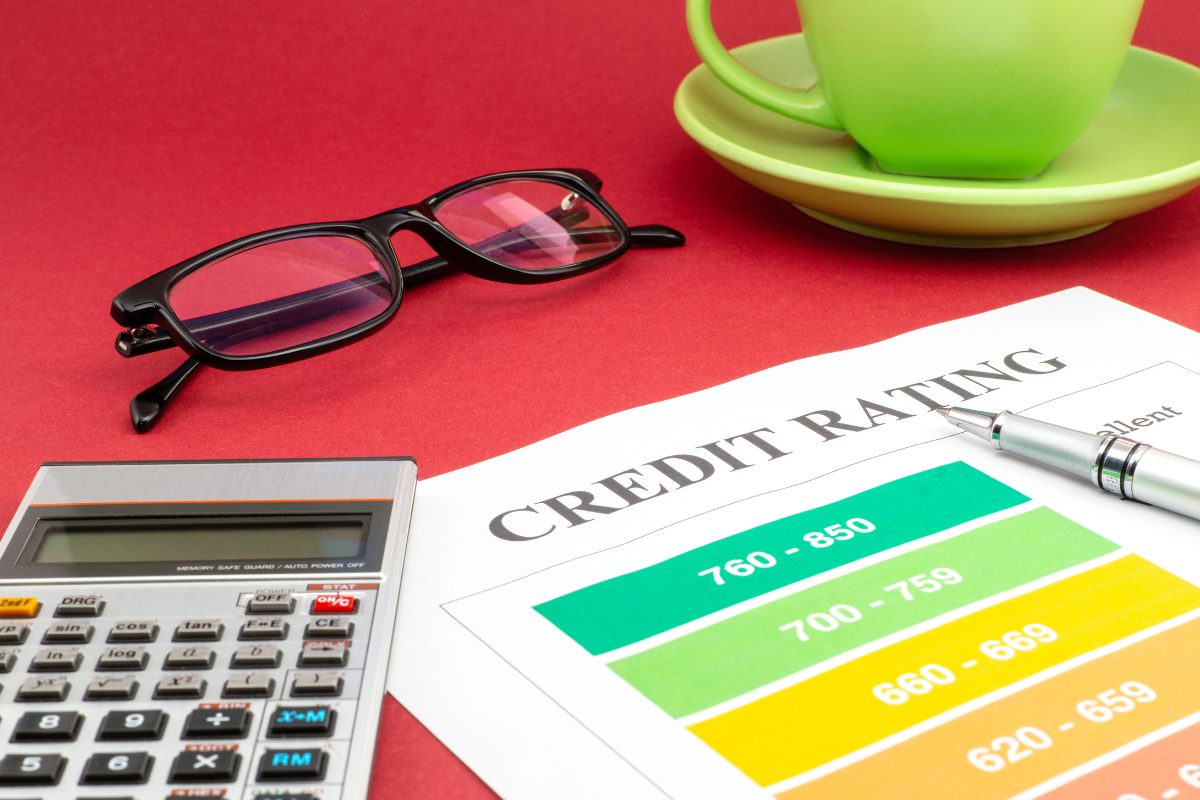When it comes to managing your finances or applying for a loan in Singapore, two key terms often come up: credit limit and credit rating. While commonly mentioned in financial discussions, many people still don’t fully understand how these concepts impact their borrowing power.
Whether you’re applying through a bank or a Singapore moneylender, your credit rating plays a crucial role in determining whether your application gets approved—and on what terms. Similarly, your credit limit reflects how much you’re allowed to borrow, based on factors like your income, existing debts, and repayment history.
This article breaks down the difference between credit limit and credit rating, explains how they influence your financial options, and offers practical tips to improve your credit standing when borrowing from a Singapore moneylender or any other financial institution.
Understanding Credit Limit: More Than Just a Number
In the context of borrowing, a credit limit is the maximum amount a financial institution or lender is willing to offer you. This is especially relevant for revolving credit facilities such as credit cards, overdrafts, or lines of credit.
Let’s say you have a credit card with a limit of S$10,000—this means you can borrow and spend up to that amount. As long as you stay within the limit and repay on time, you’re in good standing. However, going over the limit could result in penalties, declined transactions, or even damage to your credit score.
Understanding your credit limit is important if you’re planning to apply for any type of loan Singapore, as lenders often look at your existing credit exposure before approving new credit. Managing your limit responsibly can increase your chances of securing favourable loan terms in the future.
Types of Credit Limits in Singapore
- Credit Card Limit: Assigned by banks based on your income, repayment history, and existing debt. MAS guidelines stipulate that individuals earning below S$30,000 annually are generally capped at a combined credit limit of twice their monthly income.
- Personal Line of Credit Limit: Functions like an overdraft. Limits vary depending on income and overall financial health.
- Temporary Credit Limit Increase: Some banks allow a temporary increase for emergencies, large purchases, or travel, often subject to review and supporting documentation.
What Is a Credit Rating and Why It Matters
Your credit rating, or credit score, is a numerical representation of your creditworthiness. In Singapore, the Credit Bureau Singapore (CBS) issues scores ranging from 1000 to 2000. The higher the score, the lower the credit risk you present.
CBS also categorises credit ratings from “AA” (the best) to “HH” (the worst). A good rating makes it easier to secure loans, enjoy lower interest rates, and access higher credit limits.
What Affects Your Credit Score?
CBS calculates your score based on a proprietary algorithm using data contributed by financial institutions. The primary factors include:
- Payment History: Late or missed payments weigh heavily against you.
- Credit Utilisation Ratio: The amount of credit you use relative to your limit.
- Credit History Length: A longer, clean credit history works in your favour.
- Types of Credit Used: A mix of credit cards, personal loans, and mortgages shows you can handle different obligations.
- Recent Credit Applications: Frequent applications may suggest financial stress.
How Credit Limit Impacts Credit Score
A common misconception is that using a higher percentage of your credit limit improves your credit score. In reality, credit utilisation ratio plays a key role.
For instance, if your credit card limit is S$10,000 and you consistently use S$9,000, you’re utilising 90% of your credit. This is viewed as risky behaviour, even if you pay on time. Ideally, utilisation should be kept below 30% to demonstrate financial responsibility.
Additionally, high utilisation can lead to:
- Increased interest charges
- Higher chances of maxing out
- A dip in your credit score, affecting future loan approvals
Thus, your credit limit is not only a ceiling—it’s a benchmark of financial behaviour.
How To Check Your Credit Score in Singapore
The Credit Bureau Singapore offers individuals access to their credit report for a nominal fee. You can obtain it via:
- CBS’s official website
- SingPost branches
- Credit counselling organisations
You are entitled to a free credit report within 30 calendar days after a new credit facility is approved or rejected.
Checking your report allows you to:
- Detect inaccuracies or fraudulent activity
- Understand your financial position
- Monitor progress in improving your score
Strategies to Improve Your Credit Rating in Singapore
Improving your credit score is a process of consistent financial discipline. Below are actionable steps tailored to the Singaporean context.
1. Always Pay on Time
Payment history carries the most weight in CBS scoring. Set reminders, automate payments, or consolidate debts to avoid missing due dates. Late payments, even by a few days, are recorded and can damage your score for months.
2. Keep Credit Utilisation Low
Use only what you need. Aim to keep usage below 30% of your available limit. If you find yourself regularly exceeding this threshold, consider requesting a credit limit increase (but only if you can manage it responsibly).
3. Avoid Multiple Credit Applications
Each loan or credit card application triggers a hard enquiry on your credit report, slightly lowering your score. Multiple enquiries in a short span are red flags to lenders.
Apply for credit facilities only when necessary and space out applications by several months.
4. Build a Long Credit History
Keep your oldest accounts open, especially those with good payment history. This demonstrates a longer track record of credit management.
Even if you no longer actively use a credit card, consider making small, regular transactions and paying them off promptly.
5. Limit the Number of Credit Cards
While having multiple cards may offer flexibility, it can complicate your repayment schedule and lead to over-borrowing. Keep only the cards you need, and monitor them closely.
6. Review Your Credit Report Regularly
Monitoring your report helps you track improvement and identify errors. Should you find incorrect information, raise a dispute with CBS immediately for rectification.
7. Consolidate Your Debts
The Debt Consolidation Plan (DCP), available in Singapore, allows you to combine all unsecured debts into one monthly repayment. This can streamline your obligations and improve your credit profile over time.
What Not To Do When Managing Your Credit
While the tips above focus on good habits, it’s equally important to avoid behaviours that may sabotage your credit health:
- Ignoring debt obligations: Defaulting not only lowers your score but may also lead to legal action.
- Settling loans for less than owed: May be viewed as an inability to repay.
- Closing accounts too early: Can shorten your credit history and reduce your available credit, affecting utilisation ratio.
- Relying solely on balance transfers: Although useful in the short term, excessive use without repayment planning creates long-term risks.
The Link Between Income, Credit Limit, and Credit Score
In Singapore, your annual income influences both your credit limit and your eligibility for various financial products. However, income alone doesn’t guarantee a good credit score. In fact, high earners can still have poor credit ratings due to defaults or poor repayment habits.
That said, a stable, growing income supports higher credit limits and better financial offers. Keeping your debt-to-income ratio low—ideally below 40%—can help maintain a strong credit rating and reduce financial stress.
What If You Have No Credit History?

If you’ve never taken a loan or used a credit card, you may not have a credit score at all. While this doesn’t equate to bad credit, it can limit your borrowing options.
To build a credit profile:
- Start with a basic credit card and pay in full each month
- Take a small personal loan and repay responsibly
- Use Buy Now Pay Later (BNPL) schemes judiciously, as some now report to credit bureaus
Final Thoughts: Credit Is a Tool, Not a Trap
Understanding your credit limit and credit score empowers you to make smarter financial choices. In Singapore’s tightly regulated lending environment, responsible credit management is not only a matter of personal discipline—it also opens doors to better interest rates, higher borrowing capacity, and peace of mind.
Improving your credit rating takes time, but with consistent habits and a proactive approach, it’s entirely achievable. Whether you’re planning to buy a home, start a business, or simply want financial security, your credit profile will play a defining role in your journey.




